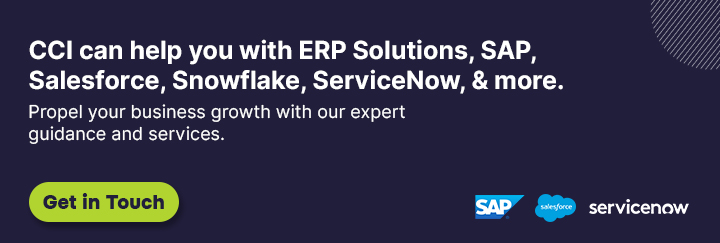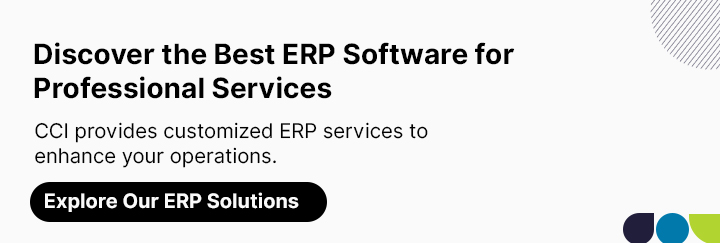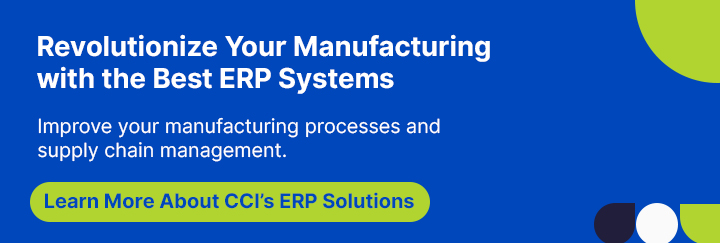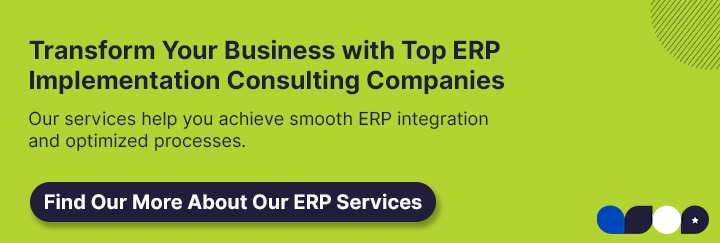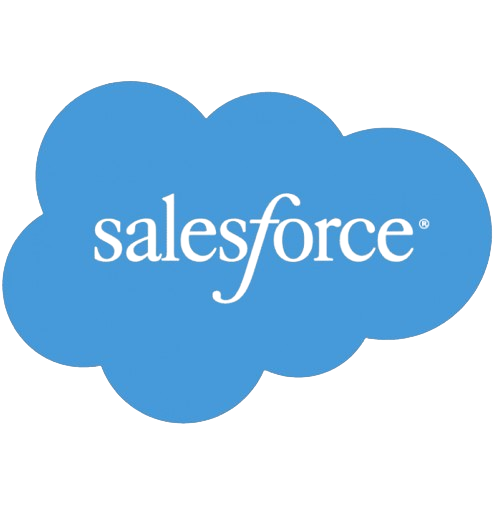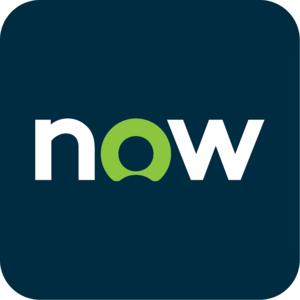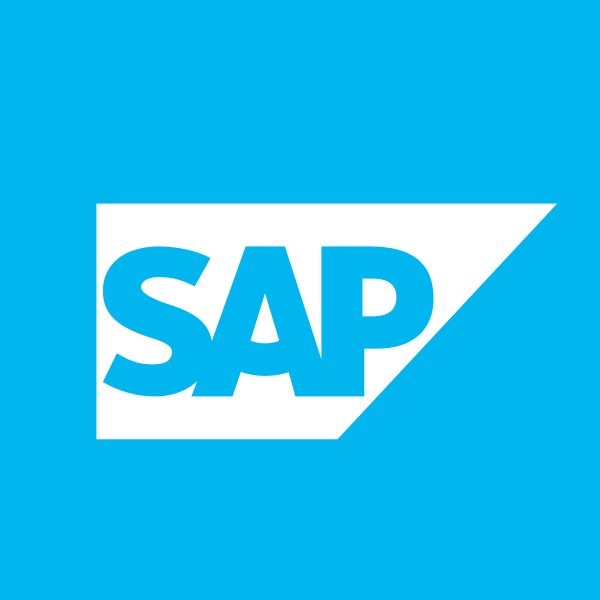Best ERP Software for Pharmaceuticals Industry 2025/2026
The best ERP system for pharmaceutical companies is more than just an operational tool—it’s a commitment to quality, patient safety, and compliance with regulations that impact lives. ERP implementation solutions help manage everything from inventory, production, compliance, financial management, and human resources.
ERP software has evolved to meet the specific needs of the pharmaceutical industry. Whether you are a small pharma startup or a large multinational manufacturer, professional ERP software development services can help your business operate more smoothly and efficiently, ensuring that life-saving products get to patients on time every time.
This blog will explore seven of the best ERP software available for the pharmaceutical industry in 2025/2026, discussing their benefits, target companies, and pricing structures.
> Related Post: Best ERP implementation companies in 2025
Requirements of Best ERP Systems for the Pharmaceutical Industry in 2025-2026
When choosing the suitable ERP for your pharmaceutical business, looking for features that cater to the industry’s unique requirements is essential. These include:
- Regulatory Compliance: The ERP must ensure that every aspect of production and distribution complies with global regulatory standards, such as GMP, FDA, and EMA regulations.
- Batch and Lot Traceability: Pharmaceutical companies must be able to track raw materials, production processes, and product distribution down to each lot.
- Inventory and Warehouse Management: Keeping track of ingredients, supplies, and products to prevent overstock, understock, or expired inventory.
- Production Management: Pharma manufacturing involves a delicate balance of formulas, recipes, and accurate processes to produce effective products safely.
- Quality Control: High-quality assurance and management levels are required to ensure products meet strict safety standards.
- Scalability and Integration: The system must grow with your business and integrate with existing tools, like R&D, finance, or supply chain management systems.
>> Related Post: Automating The End-To-End CPQ Quote Process
7 Best ERP Software for the Pharmaceutical Industry in 2025/2026
1. SAP S/4HANA
SAP S/4HANA is one of the most recognized ERP software in the pharmaceutical industry. Its platform provides a robust infrastructure designed to handle the complexity of large-scale pharmaceutical companies. S/4HANA supports comprehensive processes, including supply chain management, regulatory compliance, and advanced analytics.
Benefits:
- Real-time data processing allows better decision-making and quick responses to changes in the production process.
- Strong support for compliance with global pharmaceutical regulations, reducing the risk of costly errors or delays.
- Advanced analytics that help companies forecast demand, manage resources, and maintain operational efficiency.
- In-depth quality management tools to ensure product safety and compliance.
Targeted Types of Companies:
SAP S/4HANA is ideal for large multinational pharmaceutical companies or manufacturers with complex operations that need to manage a global supply chain, comply with strict regulations, and handle high data volumes.
Pricing:
SAP S/4HANA pricing varies significantly based on company size, specific requirements, and your needed modules. On average, pricing starts at around $100,000 annually for mid-sized businesses, but larger companies can expect to pay significantly more depending on their needs.
2. ServiceNow ITSM
ServiceNow ITSM (Information Technology Service Management) may not traditionally be considered an ERP system. Still, its ability to organize processes and manage services has made it an essential solution for the pharmaceutical industry. ServiceNow enables businesses to automate workflows, enhance compliance, and manage IT infrastructure effectively.
Benefits:
- Automated workflows that reduce manual errors and ensure compliance across departments.
- Simplified process management, making it easy to monitor and optimize pharmaceutical operations.
- The ability to integrate with other systems for a more unified operation across the company.
- Increased transparency and control over compliance, production, and distribution.
Targeted Types of Companies:
ServiceNow ITSM is ideal for mid-to-large pharmaceutical companies that need to integrate IT service management with their ERP solution. It’s particularly useful for businesses that want to automate workflows and improve transparency across departments.
Pricing:
ServiceNow ITSM operates on a subscription model, and pricing starts at around $10,000 annually, depending on the size of the company and the scope of the services used.
3. RISE with SAP
RISE with SAP is a cloud-based ERP solution designed to help pharmaceutical companies transition to cloud environments while maintaining business continuity. It’s a comprehensive package that includes SAP’s cloud ERP, business transformation tools, and access to industry-specific services.
Benefits:
- Complete cloud integration that provides scalability and flexibility for growing pharmaceutical businesses.
- Complete regulatory compliance support across multiple regions and industries.
- Advanced data analytics for better insights into operations, helping optimize production and distribution processes.
- Continuous innovation with updates and tools to keep the business up to date with the latest pharmaceutical standards.
Targeted Types of Companies:
RISE with SAP is best suited for medium—to large pharmaceutical companies looking to modernize their operations with cloud technology. It’s also ideal for businesses seeking digital transformation while focusing on compliance and operational efficiency.
Pricing:
Pricing for RISE with SAP starts at around $50,000 annually for smaller companies, but it can scale much higher for larger enterprises that need additional modules and services.
4. Snowflake Professional Services
Snowflake Professional Services provides a unique data platform that helps pharmaceutical companies manage their large amounts of data efficiently. Whether clinical trial data, production processes, or supply chain logistics, Snowflake provides real-time insights, assisting companies in making data-driven decisions.
Benefits:
- Real-time data access and insights allow faster decision-making in critical areas like compliance and production.
- It is highly scalable, making it ideal for companies that need to store and analyze large volumes of data.
- Strong security features that protect sensitive pharmaceutical data from unauthorized access.
- Integration with other systems and platforms for a more connected operation.
Targeted Types of Companies:
Snowflake is best for pharmaceutical companies managing large datasets, such as research and development, clinical trials, or companies with global distribution networks.
Pricing:
Snowflake uses a pay-as-you-go pricing model, which means the cost depends on how much data you store and process. Pricing generally starts at around $2,000 per month but can vary depending on usage.
5. MuleSoft Professional Services
MuleSoft is a powerful integration tool that helps pharmaceutical companies connect all their systems and platforms. By enabling communication between different departments, from production to compliance, MuleSoft ensures that all parts of the business are working in sync.
Benefits:
- Integration of various systems for a unified and efficient operation.
- Enhanced transparency across departments, helping to improve production and compliance processes.
- Automation features that reduce manual work and human errors.
- Scalable to meet the growing needs of a pharmaceutical business.
Targeted Types of Companies:
MuleSoft is suitable for mid-to-large pharmaceutical companies that use multiple systems and need an integration platform to ensure harmonious operations. It’s particularly useful for companies dealing with complex supply chains and regulatory requirements.
Pricing:
MuleSoft pricing depends on the size of the business and the complexity of the integrations required. Annual subscription costs typically start at $50,000 for smaller implementations but can go much higher depending on the scale.
6. Blue Link ERP
Blue Link ERP is a smaller yet highly effective ERP solution designed for pharmaceutical companies that need a reliable and easy-to-use system. It offers core ERP functionalities such as inventory management, lot tracking, and regulatory compliance features that ensure safety and efficiency.
Benefits:
- Simple and intuitive interface that makes it easy to manage pharmaceutical operations.
- A strong focus on inventory management and traceability is crucial for ensuring compliance with pharmaceutical standards.
- It is affordable and designed for smaller businesses that don’t need overly complex solutions.
- Integration with third-party applications for added flexibility.
Targeted Types of Companies:
Blue Link ERP is perfect for small to mid-sized pharmaceutical companies looking for a cost-effective solution that still offers the necessary tools to stay compliant and efficient.
Pricing:
Blue Link ERP’s pricing starts at $15,000 annually, making it affordable for small businesses with limited budgets.
7. Oracle Cloud ERP
Oracle Cloud ERP is a widely used solution in the pharmaceutical industry. It provides a cloud-based system that supports complex manufacturing, regulatory compliance, and financial management. It offers a full suite of tools that help pharmaceutical companies operate efficiently at scale.
Benefits:
- Comprehensive financial management, supply chain, and procurement tools designed to meet the demands of large pharmaceutical companies.
- Cloud-based, providing flexibility and scalability as the business grows.
- Strong analytics and reporting capabilities that help companies optimize their operations and comply with regulations.
- A secure platform that ensures data integrity and protection.
Targeted Types of Companies:
Oracle Cloud ERP is ideal for large pharmaceutical companies or manufacturers with extensive global operations. It’s handy for companies that need advanced financial management and regulatory compliance support.
Pricing:
Oracle Cloud ERP pricing starts at approximately $100,000 per year for smaller companies but can go much higher depending on the system’s complexity and the number of modules required.
>> Related Post: Best ERP Software for the Construction Industry in 2025
ERP-for-Pharma Offered by CCI
At Cloud Consulting Inc. Inc., we are committed to providing the best ERP solutions to help pharmaceutical companies thrive in a demanding industry. Our ERP consultants can help you with:
- SAP S/4HANA: We help pharmaceutical companies integrate this powerful ERP software to manage everything from production to compliance.
- RISE with SAP: Take your pharmaceutical operations to the cloud while ensuring seamless compliance with regulations.
- Snowflake Professional Services: Maximize your data with real-time insights and scalable solutions.
- MuleSoft Integration: Ensure that all systems in your company work together for smooth and efficient operations.
Conclusion
Choosing the right ERP software is a crucial decision for any pharmaceutical company. These systems help ensure regulatory compliance and production, manage inventory, and provide insights that enable better decision-making. Whether you’re a small pharma startup or a global manufacturer, an ERP solution is designed to meet your unique needs. By investing in the right ERP software, your company can operate more efficiently and contribute to the safe and timely delivery of life-saving products.
FAQs: Best ERP Systems for the Pharmaceuticals Industry
Why does the pharmaceutical industry need ERP systems?
ERP software are essential for managing the complex processes involved in pharmaceutical production, compliance, and distribution. They help companies ensure regulatory compliance, maintain product quality, and manage supply chains efficiently.
What are the key features to look for in a pharmaceutical ERP system?
Look for features that support regulatory compliance, quality control, supply chain management, inventory management, and production process optimization. Integration with other systems is also crucial.
Which ERP system is best for large pharmaceutical companies?
SAP S/4HANA and Oracle Cloud ERP are excellent choices for large pharmaceutical companies due to their scalability, comprehensive features, and strong support for compliance.
How does ServiceNow ITSM fit into pharmaceutical ERP?
ServiceNow ITSM helps pharmaceutical companies manage their workflows, compliance, and IT service management. Its versatility makes it an excellent option for supporting the industry’s unique needs.
Can small pharmaceutical companies benefit from ERP systems?
Yes, ERP software like Blue Link ERP are designed for small and mid-sized pharmaceutical companies. They provide essential features without overwhelming complexity, making them a practical choice for smaller businesses. Explore Job Openings.
